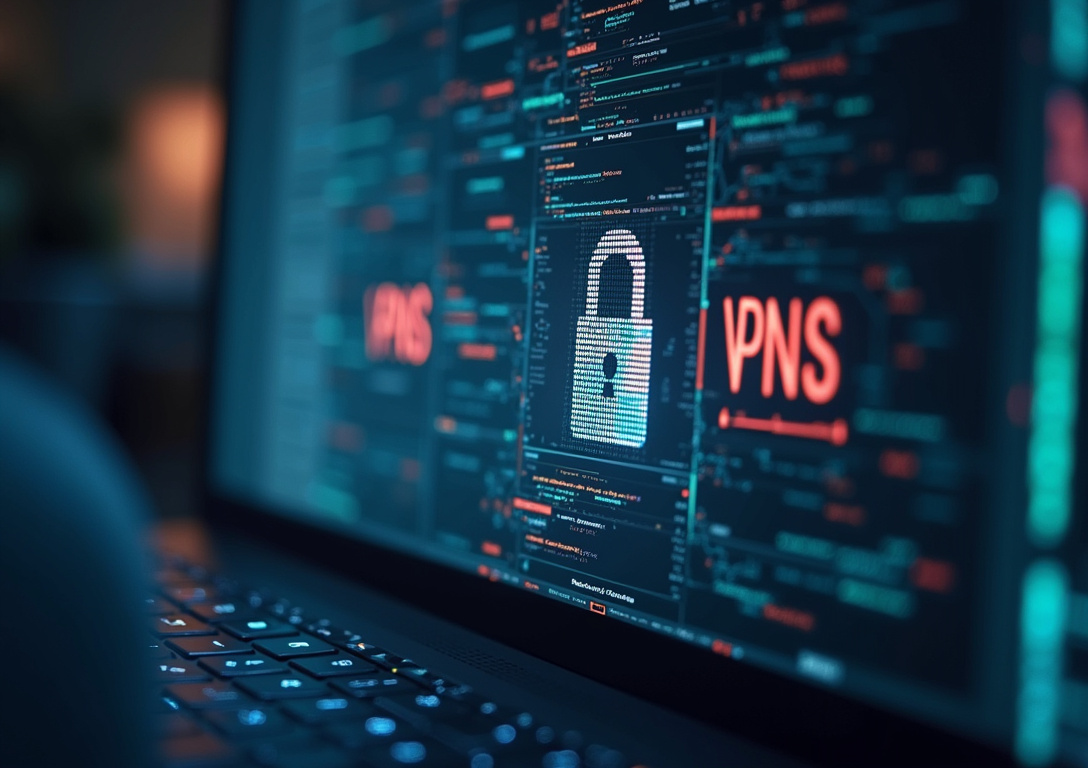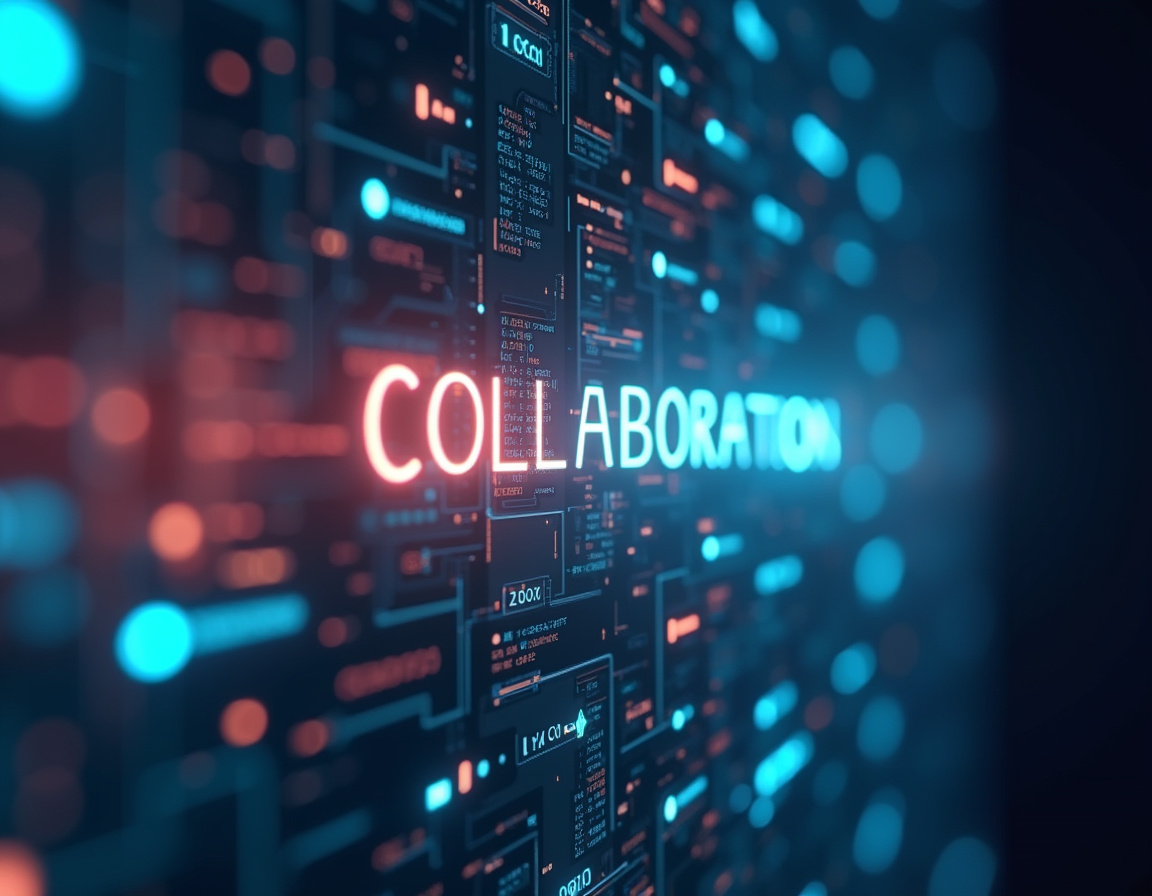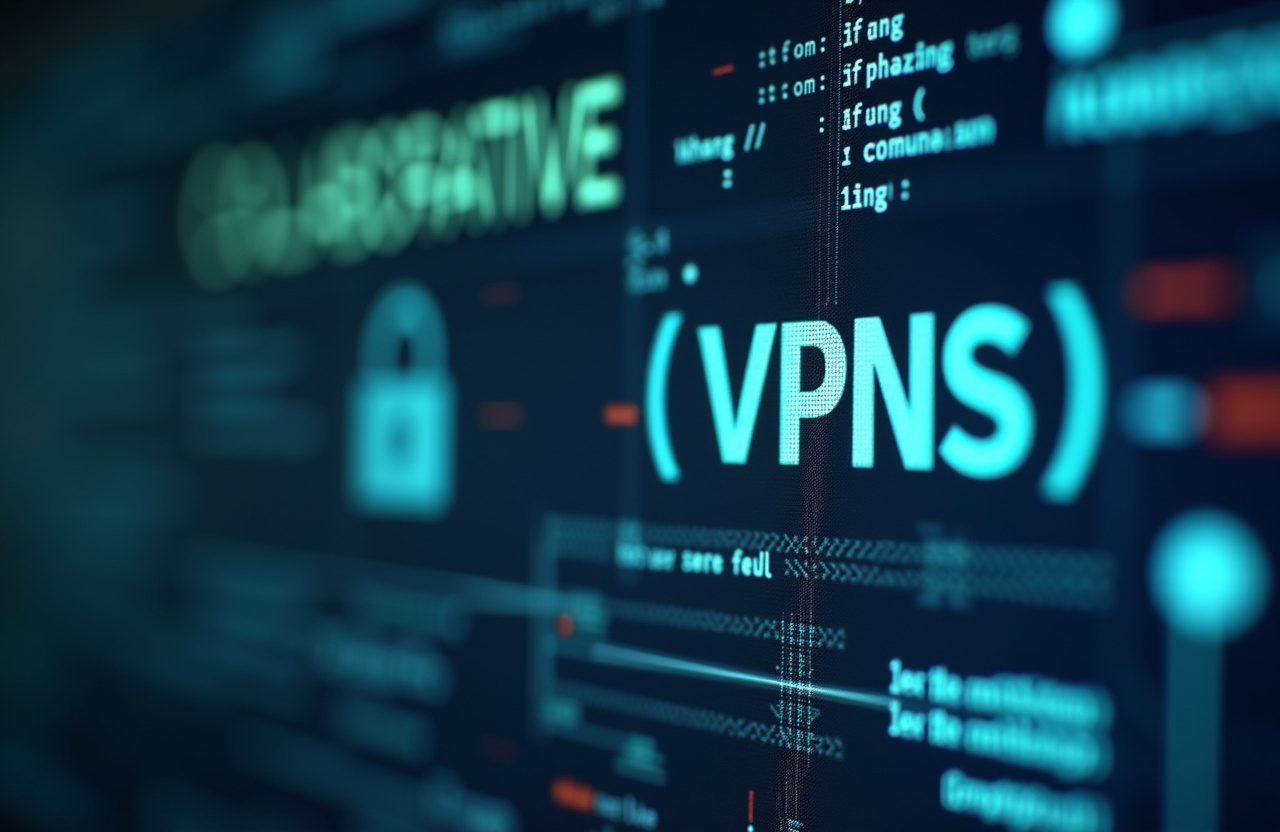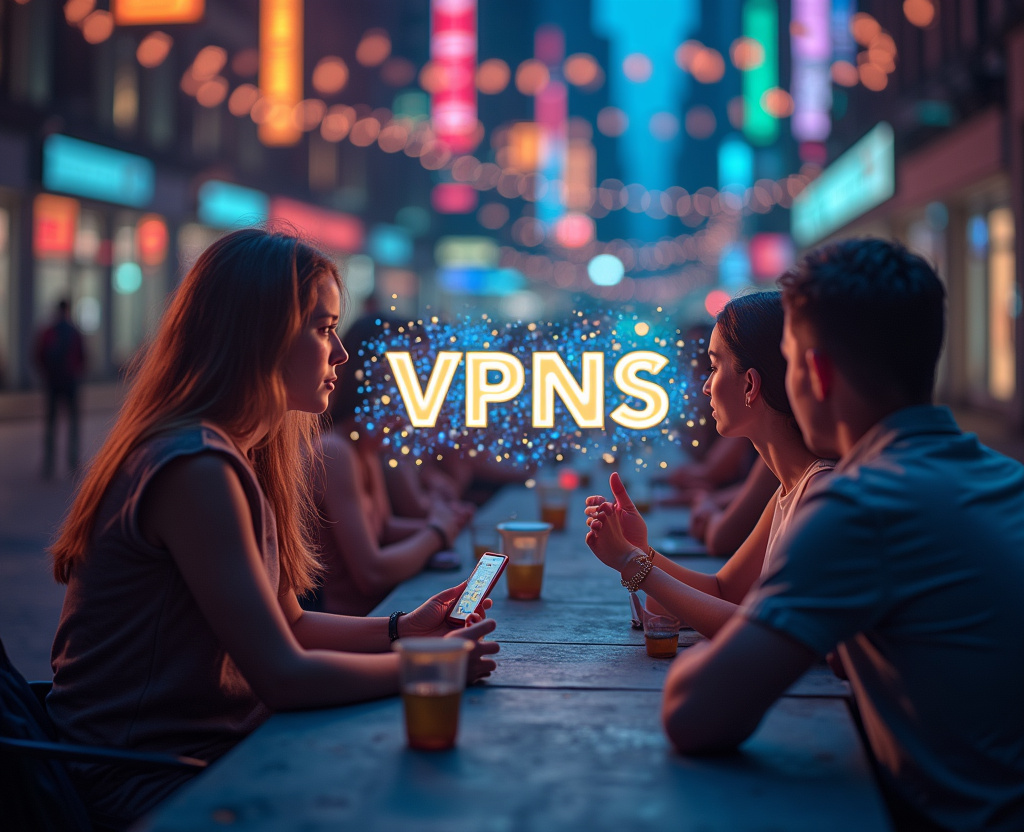VPNs for Music Collaboration: Protecting Creative Exchanges
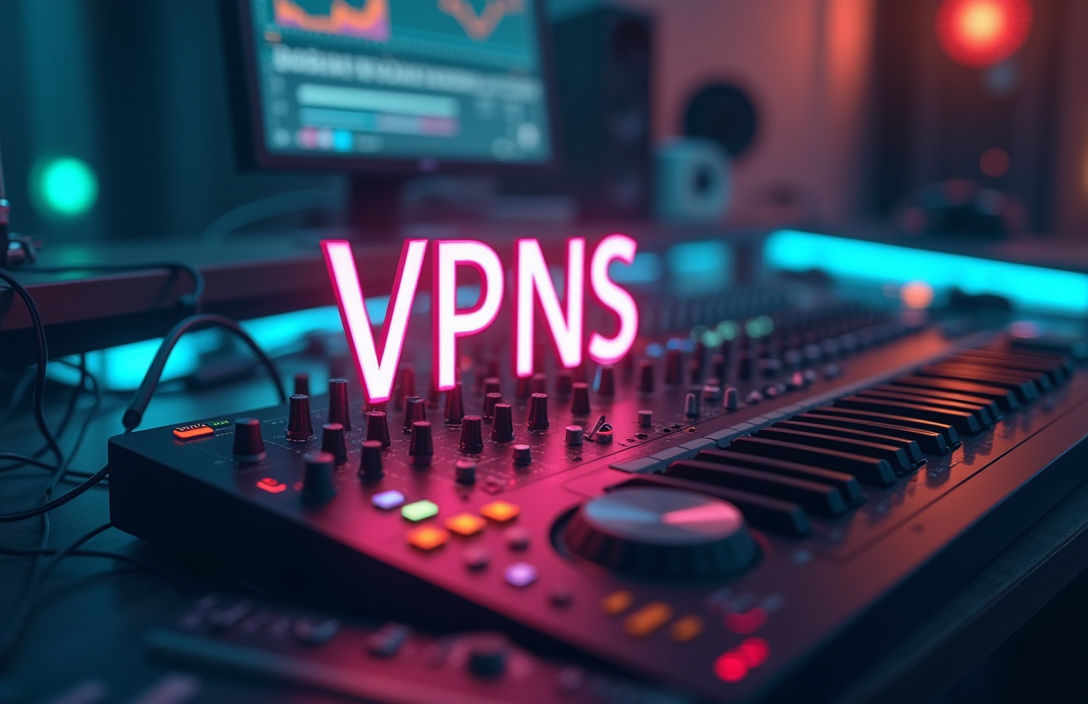
Table of Contents
Securing Musical Creativity: An Overview
In the dynamic and increasingly interconnected world of music creation, collaboration has become a cornerstone of the artistic process. Musicians, producers, engineers, and other creatives are constantly exchanging files, sharing ideas, and working together remotely on projects that span geographical boundaries. However, this collaborative environment also presents significant security challenges.
The sensitive nature of creative works, combined with the inherent vulnerabilities of online communication, necessitates robust security measures to protect intellectual property, maintain privacy, and foster a trusted collaborative space. This is where a 'music collaboration VPN' emerges as an indispensable tool, offering a secure and encrypted channel for creative exchanges. The essence of a VPN lies in its ability to create an encrypted tunnel between your device and a remote server, effectively masking your IP address and encrypting all data traffic.
For musicians, this translates to a secure pathway for sending and receiving audio files, project data, and sensitive communications, shielding these exchanges from prying eyes and potential cyber threats. The need for 'creative security' is paramount in the music industry, where leaks and unauthorized access can lead to significant financial losses and damage to artistic reputations. A VPN provides a crucial layer of protection against these threats, ensuring that creative assets remain confidential and secure throughout the collaborative process.
Beyond simply encrypting data, a VPN offers additional features that enhance the security and privacy of music collaboration. These features include protection against man-in-the-middle attacks, DNS leak prevention, and a kill switch that automatically disconnects your internet connection if the VPN connection drops, preventing any unencrypted data from being transmitted. For 'session data protection', the use of a VPN is critical.
Recording sessions, often involving multiple musicians and engineers collaborating remotely, generate vast amounts of sensitive data, including audio recordings, MIDI files, and project configurations. A VPN ensures that this data is protected from eavesdropping and unauthorized access, safeguarding the integrity of the creative process. Furthermore, a VPN can help musicians bypass geo-restrictions and access collaborative platforms or resources that may be unavailable in their region.
This is particularly useful for international collaborations, where access to specific online services or content may be limited. When selecting a 'VPN for musicians', it's crucial to consider factors such as server locations, speed, security protocols, and privacy policies. Opt for a VPN provider with a wide network of servers to ensure optimal performance and connectivity, regardless of your location or the location of your collaborators.
Look for VPNs that use strong encryption protocols, such as AES-256, and have a strict no-logs policy to ensure that your online activity is not tracked or stored. In essence, a VPN provides a secure and private environment for music collaboration, enabling musicians to share their creative ideas and assets with confidence, knowing that their work is protected from unauthorized access and potential cyber threats. It's an investment in 'creative security' that can pay dividends in the long run, fostering a trusted collaborative space and safeguarding the integrity of the artistic process.
Therefore, the implementation of a robust VPN should be considered a fundamental step in the modern music production workflow, helping facilitate open communication between artists and business partners in a safe and secure setting.
The significance of 'secure sharing' in the context of music collaboration cannot be overstated. Musicians often need to share large audio files, project folders, and other sensitive data with collaborators across the globe. Traditional file-sharing methods, such as email or cloud storage services, may not offer sufficient security for these types of transfers, leaving creative assets vulnerable to interception or unauthorized access.
A VPN enhances the security of file sharing by encrypting the data in transit, making it extremely difficult for unauthorized individuals to access or decipher the contents. This is particularly important when sharing unreleased material, demos, or other confidential information that could be damaging if leaked. Furthermore, a VPN can help musicians circumvent bandwidth throttling, a common practice employed by internet service providers (ISPs) that can slow down file transfers, especially for large audio or video files.
By masking your IP address and encrypting your traffic, a VPN can prevent your ISP from identifying and throttling your bandwidth, ensuring faster and more reliable file sharing. The use of VPNs with secure file-sharing protocols further strengthens the security of creative exchanges. Protocols like SFTP (Secure File Transfer Protocol) and SCP (Secure Copy Protocol) provide an encrypted channel for transferring files, adding another layer of protection against eavesdropping and unauthorized access.
When combined with a VPN, these protocols create a highly secure environment for sharing sensitive data. In addition to protecting file sharing, a VPN can also secure other forms of communication used in music collaboration, such as video conferencing, instant messaging, and email. These communication channels often contain sensitive information, such as project plans, financial details, and personal contact information, which should be protected from unauthorized access.
A VPN encrypts all data transmitted through these channels, ensuring that your communications remain confidential. The importance of 'session data protection' also extends to the use of digital audio workstations (DAWs) and other music production software in collaborative environments. Many DAWs offer features that allow musicians to collaborate remotely on projects in real-time.
However, these features often rely on internet connections to transmit audio and MIDI data between collaborators, creating potential security vulnerabilities. A VPN can mitigate these risks by encrypting all data transmitted between DAWs, ensuring that session data is protected from eavesdropping and unauthorized access. Choosing the best 'VPN for musicians' involves researching options that enable consistent and trustworthy performance.
It should also be flexible enough to incorporate other data-intensive activities, such as downloading sample libraries, streaming reference tracks, and even promoting work through social media. With increased security, professionals can focus on their project. VPNs enable creators to operate confidently, minimizing risks and maximizing creative expression.
Thus, the ideal VPN enhances both security and productivity.
The concept of 'creative security' extends beyond simply protecting data from external threats. It also encompasses measures to prevent internal breaches, such as unauthorized access by collaborators or accidental data leaks due to human error. A VPN can play a role in mitigating these risks by providing a secure and controlled environment for collaboration.
For example, a VPN can be used to create a virtual private network within a collaborative team, limiting access to specific resources or data based on individual roles and responsibilities. This can help prevent unauthorized users from accessing sensitive information or making changes to project files without permission. Furthermore, a VPN can be used to monitor network activity and detect suspicious behavior, such as unauthorized file transfers or attempts to access restricted resources.
This can help identify potential security breaches and take corrective action before significant damage occurs. The implementation of strong authentication measures, such as multi-factor authentication (MFA), can further enhance the 'creative security' of music collaboration. MFA requires users to provide multiple forms of identification before granting access to sensitive resources, making it more difficult for unauthorized individuals to gain access, even if they have a user's password.
Combining MFA with a VPN provides a robust security solution for protecting creative assets. In addition to technical measures, it's also important to establish clear security policies and procedures for music collaboration. These policies should outline the responsibilities of each collaborator, the types of data that can be shared, and the security measures that must be followed.
Regular security training can help ensure that all collaborators are aware of the risks and understand how to protect creative assets. 'Session data protection' is particularly crucial during the recording and mixing stages of music production. These sessions often involve sensitive audio recordings, MIDI files, and project configurations that represent significant investments of time and effort.
Loss or compromise of this data can be devastating, potentially derailing entire projects. A VPN can help protect session data by encrypting all communication between collaborators, ensuring that sensitive information is not intercepted or accessed by unauthorized individuals. In addition to encrypting data in transit, it's also important to encrypt data at rest, meaning that sensitive files should be encrypted even when they are not being actively used.
This can be achieved using encryption software or hardware encryption devices. When transferring files between collaborators, it's important to use secure file transfer protocols, such as SFTP or SCP. These protocols encrypt the data in transit, preventing eavesdropping and unauthorized access.
It's also important to verify the identity of the recipient before sending sensitive files to ensure that they are not being sent to the wrong person. The choice of 'VPN for musicians' must include assessment of logging practices. A VPN provider adhering to a strict no-logs policy assures users that their activities, including the specifics of music collaboration, are never recorded or stored.
This reinforces confidentiality and further secures the collaborative process. It solidifies user trust in the VPN's commitment to protecting sensitive data.
VPNs for Services: Enhancing Security for Music Platforms
The benefits of using a 'music collaboration VPN' extend beyond just security. A VPN can also improve the efficiency and productivity of collaborative workflows. By circumventing bandwidth throttling, a VPN can ensure faster file transfers and more reliable communication, allowing collaborators to work more efficiently and meet deadlines more easily.
Furthermore, a VPN can provide access to collaborative platforms and resources that may be unavailable in certain regions. This is particularly useful for international collaborations, where access to specific online services or content may be limited due to geo-restrictions. A VPN allows collaborators to bypass these restrictions and access the resources they need to complete their projects.
The ability to securely share and access large files is a critical requirement for music collaboration. Musicians often work with high-resolution audio files, project folders, and video content that can be extremely large. Traditional file-sharing methods may not be able to handle these large files efficiently, leading to delays and frustration.
A VPN can help overcome these limitations by providing a secure and reliable channel for transferring large files. By circumventing bandwidth throttling and optimizing network performance, a VPN can ensure that large files are transferred quickly and efficiently. In addition to file sharing, a VPN can also facilitate real-time collaboration on music projects.
Many digital audio workstations (DAWs) offer features that allow musicians to collaborate remotely on projects in real-time. These features often rely on internet connections to transmit audio and MIDI data between collaborators. A sub-optimal internet connection can lead to latency and synchronization issues, making real-time collaboration difficult.
A VPN can mitigate these issues by providing a stable and low-latency connection. By optimizing network performance and reducing latency, a VPN can ensure that real-time collaboration is smooth and seamless. 'Secure sharing' enabled by VPN solutions are also important for protecting preview versions of music with labels, publishers, and potential licensees.
Sending secure, encrypted links to works-in-progress controls who has access and prevents unauthorized distribution before the material is officially released. This allows for a more controlled and secure feedback process, helping artists make informed decisions about their music. Maintaining 'session data protection' contributes towards a better and safer creative process among collaborators.
The process includes backing up recording sessions and collaborative files onto secure, encrypted cloud servers. Combined with the network-level security of a VPN, these backups ensure protection against data loss or corruption, keeping collaborations intact and accessible. The selection of a 'VPN for musicians' should further focus on ease of use within the creative workflow.
A clean, intuitive interface lets musicians quickly connect to a secure server without disrupting project workflow. Also, multi-device compatibility allows everyone to work from varied locations while using a diverse range of equipment -- laptops, tablets, smartphones -- while upholding a consistently secure connection. Ultimately, the right VPN enhances productivity and collaboration while significantly easing security worries.
Elevating Music Collaboration Security: Best Practices
In conclusion, the adoption of a 'music collaboration VPN' is no longer a luxury but a necessity for musicians and creative professionals operating in today's digital landscape. The risks associated with unprotected online communication and file sharing are simply too great to ignore. A VPN provides a comprehensive solution for protecting creative assets, maintaining privacy, and fostering a trusted collaborative environment.
By encrypting data in transit, masking IP addresses, and providing access to geo-restricted resources, a VPN empowers musicians to collaborate with confidence, knowing that their work is secure. The emphasis on 'creative security' highlights the proactive approach needed to safeguard intellectual property in the music industry. Taking measures to ensure session recordings, project files, and even communication between band members remains private is key to preserving an artists creative vision and financial stability.
A VPN becomes a vital component in this modern music ecosystem, ensuring that creative control remain within its intended hands. Prioritizing 'session data protection' is not just about security; it is also about nurturing trust within collaborative endeavors. With the safety net given by the encryption capabilities of a VPN, musicians and producers are more willing to openly explore ideas and techniques, cultivating a creative atmosphere where innovation and authenticity can grow.
This is an investment in the collaborative process, ensuring data loss or privacy issues never hinder artistic progress. The concept of 'secure sharing' goes beyond merely transferring files; it encapsulates the idea of controlled distribution. Utilizing VPNs with secure servers brings peace of mind, knowing previews, demos, and final cuts reach their intended recipients without undue risk of being intercepted and leaked before an official release date.
This bolsters project timelines, supports fair compensation standards, and gives artists better control over how and when their product reaches followers. The key aspects to consider when choosing a 'VPN for musicians' include robust encryption, a no-logs policy, a wide server distribution network, and good speeds. The encryption aspect should be the main focus, which ensures safe and encrypted transmission.
It is valuable, for music creators, to find a service that is not only efficient in digital security for their collaborations but also has no record policy thus promoting responsible use, ensuring that the creative process remains private. By carefully evaluating these features, musicians can select a VPN that meets their specific needs and provides the optimal balance of security, performance, and compatibility. It remains an integral element to take full advantage of technical progression without facing risk.
Ultimately, a well-chosen and properly implemented VPN can empower musicians to collaborate more effectively, securely, and creatively, contributing to the development of innovative music and the continued growth of the music industry as a whole. By prioritizing security and privacy, musicians can protect their creative assets, foster trust within their collaborative teams, and unlock new opportunities for artistic expression. Therefore, embracing this technology isn't just an advantage; it's a fundamental requirement for thriving in the modern musical sphere.
Stay Updated
Get the latest VPN news, tips, and exclusive deals to your inbox.

